Why being customer obsessed can transform your company into a digital business.
Introduction
Be Transformative
 Digital business transformation is about making fundamental changes in how business is conducted in order to help cope with a shift in environment . The shift has occurred. The shift is becoming a digital business. The approach should be about transformation.
Digital business transformation is about making fundamental changes in how business is conducted in order to help cope with a shift in environment . The shift has occurred. The shift is becoming a digital business. The approach should be about transformation.
What is happening in many cases is that we are adding racing stripes to a 20 year old Chevy and think we now have a race car. We dont have a racecar. We still have a 20 year old Chevy that looks fast but isnt.
The first thing is to recognize is that there is a burning platform . This is a decision by the CEO and the C-Suite that the business must be different to survive. Without that fundamental vision at the highest level, complete transformation cant occur. Incremental gains can be made by others but true transformation has to be owned by the most senior of senior management.
Your company is likely to face an extinction event in the next 10 years. And while you may see it coming, you may not have enough time to save your company. ~~Nigel Fenwick, The Future of Business is Digital

And here is more from a recent study by MIT Sloan Management Review and Capgemini Consulting.
A study by MIT Sloan Management Review and Capgemini Consulting finds that companies now face a digital imperative: adopt new technologies effectively or face competitive obsolescence. While there is consensus on the importance of adopting digital technology, most employees find the process complex and slow. Many say their leaders lack urgency and fail to share a vision for how technology can change the business. Companies that succeed tend to have leaders who share their vision and define a road map, create cross-organizational authority for adoption and reward employees for working towards it. ~~ Michael Fitzgerald, Nina Kruschwitz, Didier Bonnet and Michael Welch
What we need to do is to envision the digital future of your business. Without a compelling vision of where you are going and why it is imperative, you will probably be painting race stripes on a 20 year old Chevy. What assets will be valuable in a digitally-transformed business? How can you transform customer experience? Internal operations? Your business model? How can units work differently and work together differently in a more connected way?
Look at the media industry. It has been completely transformed by digital technology . It is now happening, at various speeds, to the rest of our commercial, nonprofit and government world. Everyone is experimenting. Everyone is tinkering. Some are putting their toes in the water. A few have jumped in and find they arent drowning. They are reaping huge results.
A central question to answer as a digital executive is "Is my company ready to be disrupted?"
Critical to this question is the premise that you are going to be disrupted fairly radically if you don't get ready. Do you personally believe a "radical change" is happening now? Of course, if you don't believe that, no need to ask the question.
If you do believe it could happen, it is well worth getting away from the office to consider what to do very soon to avert it. Taking the time to have a serious answer might make all the difference in success or failure three years from now.
The next question is this. If you or your company isn't ready, what should you do about it? It is important to think through what you personally should do as opposed to what "the company" should do. You can control your plan. You can only influence the corporate approach.
The answer will set your agenda for the next six months.
Let the transformation begin.
A radical change is happening. B2B and B2C are being overtaken by P2Ppeople to people. Companies that ignore it are taking a big risk. Ray Wang, Principal Analyst, Founder and Chairman of Constellation Research
via Annual Report 2013 | Capgemini Worldwide .
Transformation is occurring. It cant be escaped. It is about how people collaborate and work. It is about the way business processes are executed. It is most certainly about how we understand our customers and obsess about the experience. It is about how we use digital technology to radically shift how we provide amazing experiences for our customers. It is radical and it is now.
Customers are in charge. That is a profound shift. At our core, do we get that shift? There is a convergence of customers being in control and our designing experiences that easily help them reach their goals. What if we dont? They will let everyone know about it and go somewhere else. It is that simple. Do you see it coming?
As senior managers, you alone possess the skills and resources to make it happen. You can decide to transform and survive or you cannot. No one else can make that happen. It is up to you to create the vision.
It is up to you decide who is on the bus and who is not. Here is the tough thing. Not all of your people and senior management gets it. To assume otherwise will hinder you. You need to decide who is on board and who is not. You need to get those who are not on board off the bus, as gently as you can, but as soon as possible. Delay will only hinder you and you know it.
Your desire to strive to digital maturity and make it happen is something that really matters. You need to make sure there are targets for progress, they are well known and they are met. That cannot be delegated.
Communicating the vision cant be delegated either. It is up to you to take a stand. It is up to you to communicate it. The message needs to get through and no one else can do it. Do develop a serious communication plan. Make sure that it is followed.
You have to decide that monitoring engagement with the vision is measured. If you dont decide that, who else will? You have to decide to iterate the vision, goals and strategies. You have the starting point but others will add and enhance what you start with. Setting up an iterative process gains commitment and value. Just remember to not let people wander off into unfertile territory.
Having started with a great vision, goals and strategies, you have to make investment decisions. Again, no one else can do that for you. You have to decide what the priorities are and fund them. Only you can cut across silos and departments to integrate the work. You have to coordinate digital initiatives that radically transform traditional operational initiatives. The keepers of the silos will not think that way and it is unreasonable to think they will. You have to do and you will have to force some of the funding in spite of what others may think.
You will have to decide what the KPIs and metrics need to be. Others can inform that but you must agree and sometimes disagree with what the levers are to get you to make progress on your goals and strategies. You have to decide what the reasonable timeframes are to make progress. Shorter timeframes are better. That will help your people focus. You need to decide what is the process you will use to make necessary adjustments. Adjustments will need to be made. Assuming otherwise has you blindly executing initiatives that get off track.

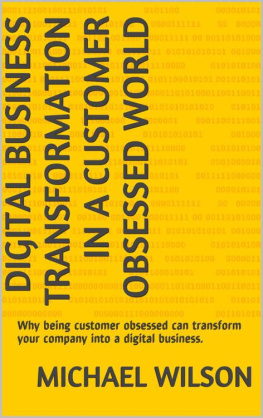







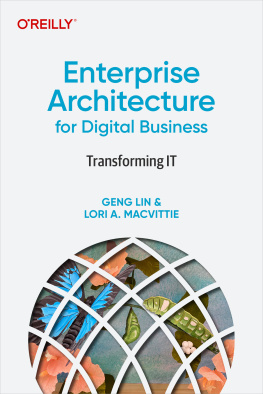


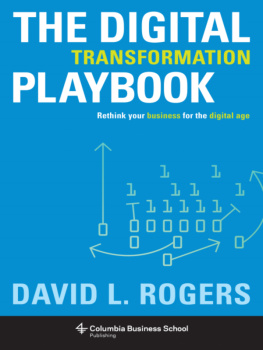

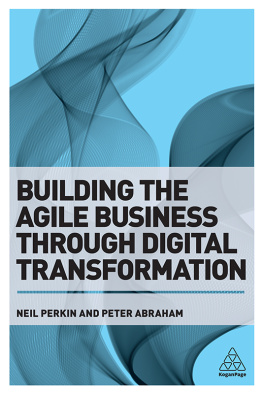
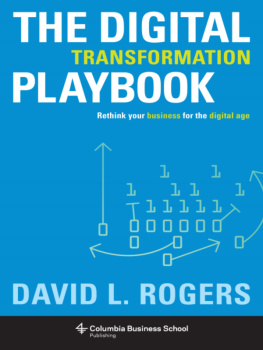

 Digital business transformation is about making fundamental changes in how business is conducted in order to help cope with a shift in environment . The shift has occurred. The shift is becoming a digital business. The approach should be about transformation.
Digital business transformation is about making fundamental changes in how business is conducted in order to help cope with a shift in environment . The shift has occurred. The shift is becoming a digital business. The approach should be about transformation.